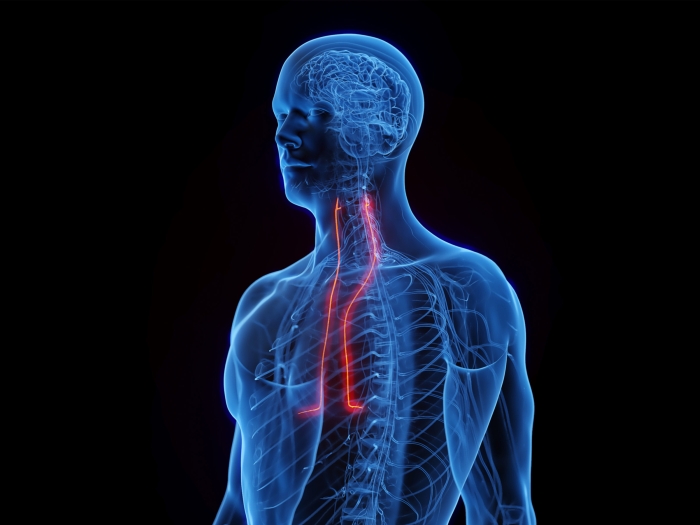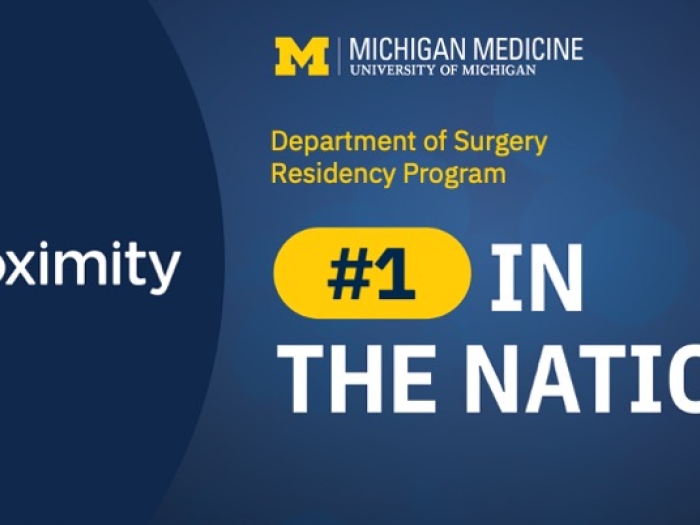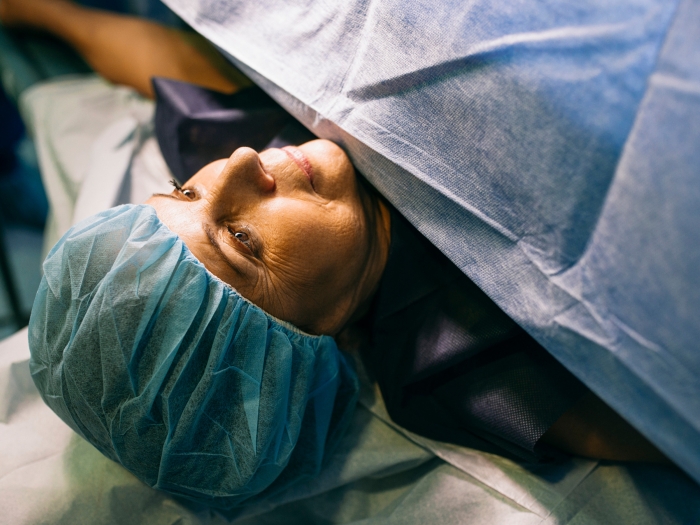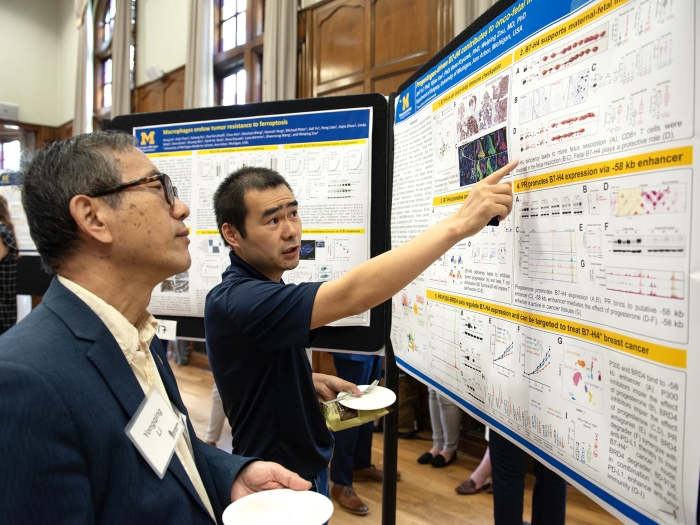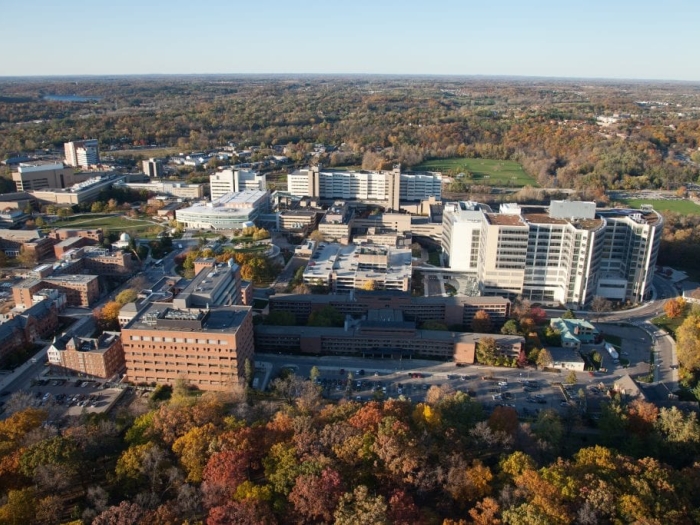
Comprehensive Care
Our thoracic surgery clinical practice provides care for even the most complex chest conditions, including diseases of the trachea, lung, mediastinum and more.
We specialize in surgical treatment for diseases of the trachea, lung, mediastinum, diaphragm and esophagus as well as lung transplantation. Our lung transplant program is the largest in the state in terms of operative volume. This broad experience provides perspective and the skills to assess, treat, and support our transplant patients now and throughout their recovery.
Our efforts in basic science and translational research provide a foundation for understanding the mechanisms of the diseases we treat, and a forum for testing new technologies and treatments with clinical impact.
The Section of Thoracic Surgery is a member of the Society of Thoracic Surgeons (STS), a prestigious international not-for-profit organization that is committed to ensuring the best possible cardiothoracic surgical outcomes. We participate in the STS National Database, which supports quality improvement and patient safety in cardiothoracic surgery.
Empowering Patients
Beyond the operating room and clinics, we extend our care for patients by providing the knowledge, the community and the resources that will support their health in the long term.
We host a regular support group for patients who have undergone or are about to undergo an esophagectomy, a complex operation that affects a patient’s daily life for years to come. Connecting patients with those who have had similar operations provides the understanding and the advice that enables them to adapt and thrive.
Our innovative Michigan Surgical & Health Optimization Program (MSHOP) helps coach preoperative patients through exercises designed to get them moving, eating healthfully, breathing deeply, and taking time to relax. Our research shows how these 4 factors help patients “train” for surgery, allowing them to return home sooner after their operation and feel better faster. MSHOP was initiated in 2011 and has expanded to more than 20 medical practices and hospitals across Michigan. The program is a Centers for Medicare & Medicaid Services Health Care Innovation Award winner.
Our Team
Our strengths extend beyond that of our faculty surgeons and encompass our entire care team, physician assistants, nurses and nurse practitioners, residents and fellows. One of our providers is always on hand around the clock, available on –site and by telephone, which allows us to provide seamless care delivery and improved patient experience.
Beyond the Section of Thoracic Surgery, we develop close and coordinated relationships with colleagues in oncology, cardiac surgery, gastroenterology, transplant surgery, dentistry and engineering to provide comprehensive care to patients and to create research partnerships that are informed by many disciplines, not just our own.
We specialize in surgical treatments to reconstruct and repair the chest, including conditions of the diaphragm, chest wall and sternum. We also perform chest wall resections and reconstructions to treat tumors invading the chest wall, achieving excellent functional and cosmetic results.
Our esophageal surgery program is one of the largest in the U.S., performing more than 200 major operations a year for the treatment of gastroesophageal reflux and its complications; neuromotor esophageal dysfunction; and tumors. We perform all types of anti-reflux operations, both open and minimally invasive, including the combined esophageal-lengthening Collis gastroplasty-Nissen fundoplication procedure, to reduce the risk of recurrent gastroesophageal reflux and hiatal hernia.
We work with our partners in radiology, pathology, and pulmonary medicine to provide advanced care for patients with lung and airway disorders including emphysema and pulmonary fibrosis. Our expertise in minimally invasive surgical techniques improves patient health outcomes and reduces healing time.
Our United Network for Organ Sharing (UNOS)-accredited transplant program is the largest in the state, with thoracic surgeons performing 30 to 40 lung transplants each year in partnership with the U-M Transplant Center. We evaluate 3 to 4 new patients each week in our multidisciplinary program, which coordinates the work of thoracic surgeons, pulmonologists, nurses and social workers.
We excel in the surgical management of cancerous and non-cancerous conditions of the mediastinum, using minimally invasive and robotic-assisted techniques to improve outcomes. For patients who need biopsy of mediastinal lymph nodes, we offer ultrasound-guided transbronchial needle aspiration biopsy, a procedure that does not require general anesthesia like traditional mediastinoscopy.
Our Minimally Invasive Thoracic Surgery Program uses technologically advanced tools, including da Vinci robots and video-assisted techniques (VATS), to perform lung and esophageal operations with smaller incisions that result in less postoperative pain for patients, shorter hospital stays, and a quicker return to normal activities.
Our Thoracic Cancer Clinic focuses on the care of patients with intrathoracic cancers, including esophageal cancer, small cell and non-small cell lung cancer, thymic malignancies, and mesothelioma. We are national leaders in performing transhiatal esophagectomies, a procedure re-introduced by Michigan thoracic surgeon Dr. Mark B. Orringer, MD.
